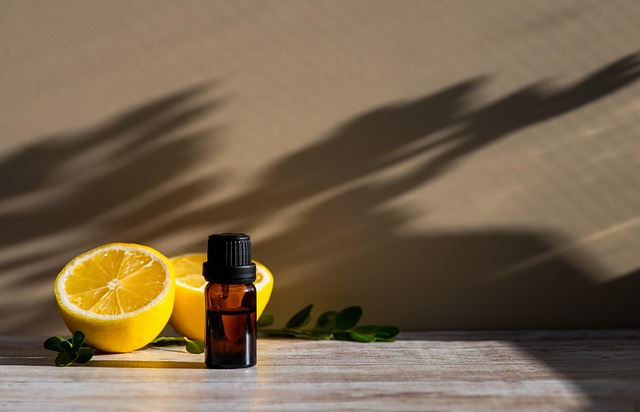Holistic recovery prioritises overall well-being by addressing physical health, mental resilience, emotions, and social connections, focusing on prevention and underlying causes. Key injury prevention tips include regular exercise, proper nutrition, quality sleep, yoga, meditation, and breathing exercises. These practices enhance mental clarity, physical stability, reduce stress, improve body mechanics, and boost overall health, contributing to faster recovery and long-term disease prevention. Mindfulness, proper nutrition, and community support are vital for cultivating resilience, fostering a robust framework of effective injury prevention strategies.
“Discover the power of holistic approaches to recovery and well-being, a comprehensive strategy gaining traction in today’s health landscape. This article explores a multi-faceted approach to healing, focusing on mind, body, and spirit integration. From understanding the foundational principles of holistic recovery to practical injury prevention tips, we delve into effective strategies. Learn how nutrition, lifestyle adjustments, mindfulness practices, movement routines, and community support foster resilience and promote long-term wellness. Embrace a transformative journey towards optimal health.”
- Understanding Holistic Recovery: A Comprehensive Approach to Well-being
- Injury Prevention: Integrating Mind, Body, and Spirit Strategies
- The Role of Nutrition and Lifestyle in Holistic Wellness
- Cultivating Resilience: Mindfulness, Movement, and Community Support
Understanding Holistic Recovery: A Comprehensive Approach to Well-being

Holistic recovery is a comprehensive approach that considers all aspects of an individual’s life, including physical health, mental well-being, emotional resilience, and social connections. Unlike traditional models that often focus on treating symptoms alone, holistic approaches prioritize prevention and balance. This means addressing not just the immediate issues but also the underlying causes and lifestyle factors that contribute to overall health. By integrating practices such as mindfulness, exercise, nutrition, and stress management, individuals can cultivate a deeper sense of well-being and build sustained resilience.
Injury prevention tips play a significant role in holistic recovery. This includes adopting healthy habits like regular physical activity, proper nutrition, and adequate sleep. Additionally, techniques like yoga, meditation, and deep breathing exercises can help reduce stress levels, improve mental clarity, and enhance overall flexibility and strength. These practices not only promote faster recovery from injuries but also empower individuals to maintain optimal health and prevent future ailments.
Injury Prevention: Integrating Mind, Body, and Spirit Strategies

Injury prevention is a key component of holistic approaches to recovery and well-being, focusing on strategies that integrate mind, body, and spirit. By adopting a comprehensive view of health, individuals can reduce the risk of injuries and promote long-term resilience. Mindfulness practices, such as meditation and yoga, have been shown to enhance mental clarity and physical stability, allowing people to move with greater awareness and balance. Incorporating these practices into daily routines not only reduces stress but also improves overall body mechanics.
Spiritual well-being plays a significant role in injury prevention by fostering a sense of purpose and connection. Engaging in activities that nurture the spirit, whether through prayer, nature walks, or creative expression, can boost resilience and promote positive coping mechanisms. Additionally, holistic approaches emphasize the importance of proper nutrition and adequate rest, as these fundamental aspects support both physical and mental health. Together, these strategies create a robust framework for injury prevention, enabling individuals to thrive in their pursuit of well-being.
The Role of Nutrition and Lifestyle in Holistic Wellness

In the pursuit of holistic wellness, nutrition and lifestyle play a pivotal role in fostering both physical and mental health. A balanced diet rich in whole foods, essential nutrients, and antioxidants is not just fuel for the body but a powerful tool in injury prevention tips. Incorporating plenty of fruits, vegetables, lean proteins, and healthy fats supports optimal bodily functions, boosts immunity, and reduces inflammation, thereby enhancing overall well-being.
Lifestyle practices such as regular physical activity, adequate sleep, and stress management complement nutritional choices. Exercise not only strengthens muscles and improves cardiovascular health but also boosts mood and cognitive function. Quality sleep is essential for muscle repair, hormone regulation, and emotional balance. Stress reduction techniques like mindfulness meditation or yoga can further contribute to a holistic approach by calming the mind, reducing tension, and promoting resilience in challenging situations, including injury prevention.
Cultivating Resilience: Mindfulness, Movement, and Community Support

Cultivating resilience is a key component of holistic recovery and well-being. Mindfulness practices, such as meditation and breathing exercises, help individuals stay present and reduce stress levels, acting as powerful injury prevention tips. By focusing on the mind-body connection, mindfulness enhances mental fortitude, enabling people to better cope with challenges and setbacks.
Physical movement, including regular exercise and yoga, plays a crucial role in building resilience. It not only strengthens the body but also boosts mood and energy levels. Incorporating movement into daily routines can serve as effective injury prevention tips, improving overall physical health and enhancing an individual’s ability to navigate life’s twists and turns with grace and resilience. Community support is another vital element. Connecting with like-minded individuals provides emotional backing, encouragement, and a sense of belonging, fostering a supportive environment that promotes holistic well-being.
Holistic approaches to recovery and well-being integrate mind, body, and spirit strategies, offering a comprehensive path to optimal health. By incorporating practices like mindfulness, movement, nutritious lifestyles, and community support, individuals can effectively prevent injuries and cultivate resilience. Adopting these holistic methods not only enhances overall wellness but also provides effective injury prevention tips for a balanced, fulfilling life.
